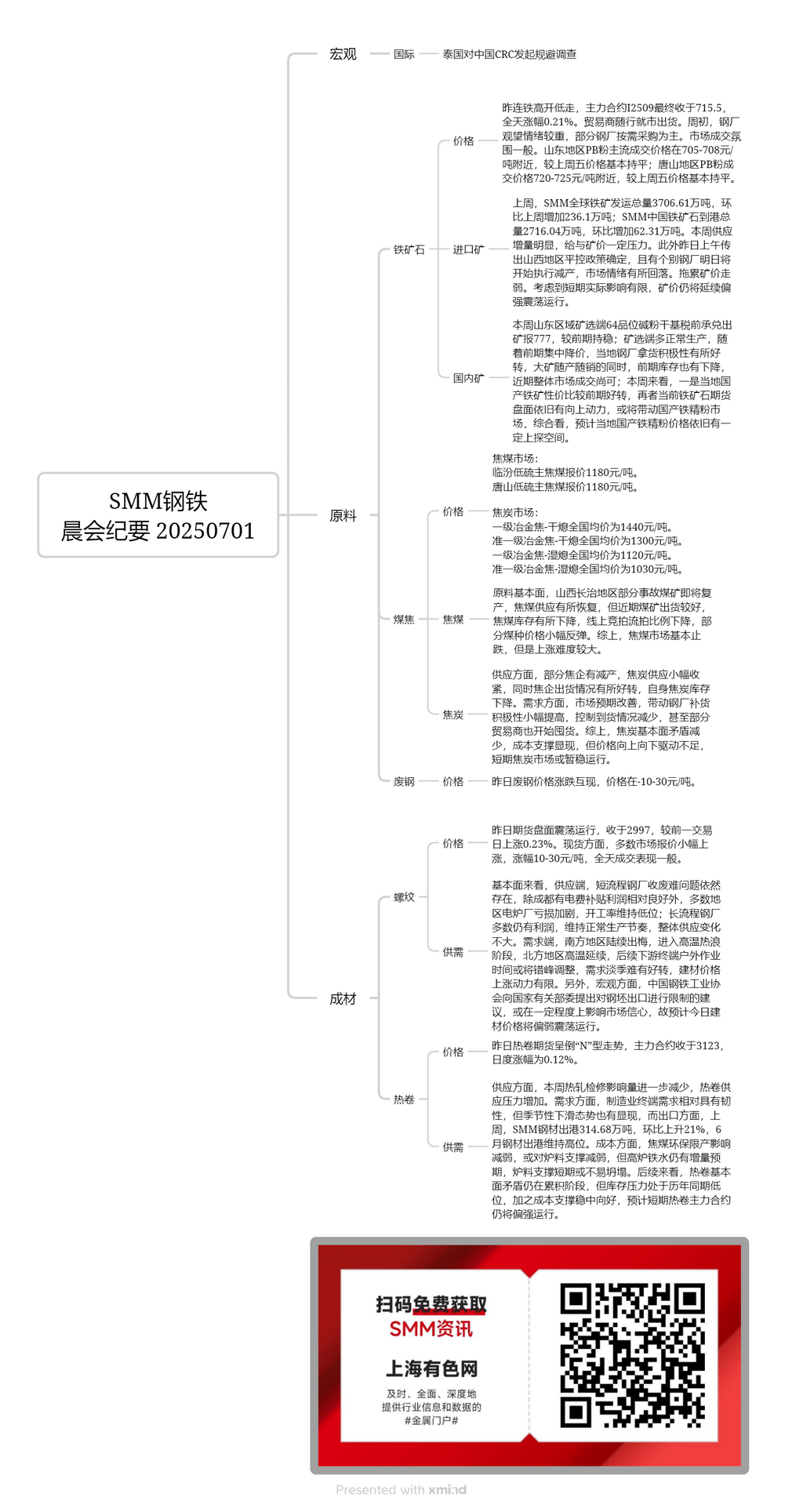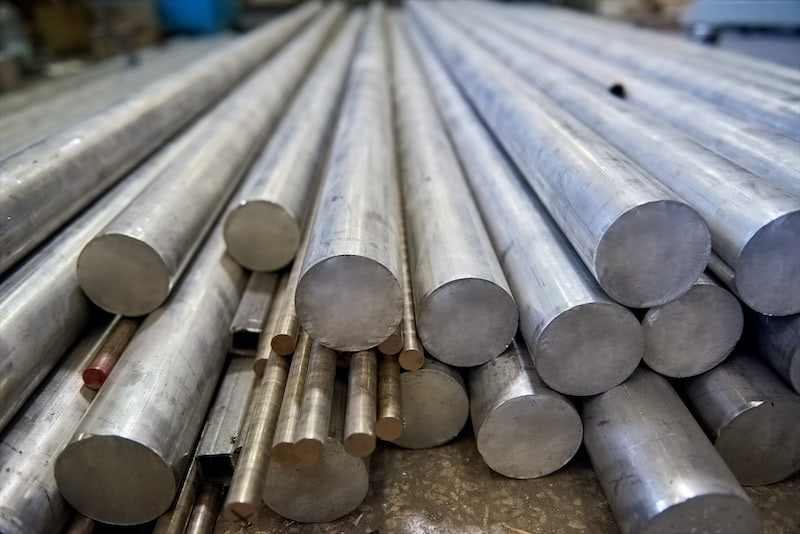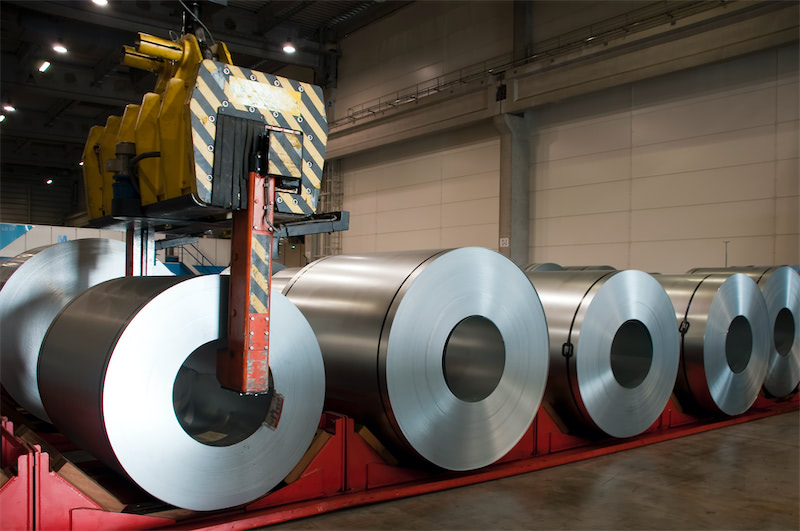
Domestic ore:
In Shandong this week, the 64-grade alkaline iron ore concentrates from mines and beneficiation plants were quoted at 777 yuan/mt on a dry basis with tax-excluded acceptance, flat from the previous period. Most mines and beneficiation plants maintained normal production. Following the earlier concentrated price cuts, purchasing enthusiasm from local steel mills improved. While large mines sold their output immediately, their previous inventory also declined. Overall market transactions were moderate recently. This week, on one hand, the cost-performance ratio of local domestic iron ore improved compared to the previous period. On the other hand, iron ore futures still showed upward momentum, which may drive the domestic iron ore concentrates market. Overall, local domestic iron ore concentrates prices are expected to have some room for further increases.
Imported ore:
Yesterday, DCE iron ore futures moved downwards after a higher opening, with the most-traded contract I2509 closing at 715.5, up 0.21% for the day. Traders sold goods following market trends. At the beginning of the week, steel mills showed strong wait-and-see sentiment, with some purchasing as needed. Market transaction atmosphere was moderate. In Shandong, mainstream transaction prices for PB fines were around 705-708 yuan/mt, basically flat from last Friday. In Tangshan, PB fines traded around 720-725 yuan/mt, also flat from last Friday. Last week, SMM global iron ore shipments totaled 37.0661 million mt, up 2.361 million mt WoW. SMM China iron ore arrivals reached 27.1604 million mt, up 623,100 mt WoW. This week's significant supply increase exerted some pressure on ore prices. Additionally, news emerged yesterday morning that the production control policy in Shanxi was confirmed, with some steel mills expected to start production cuts tomorrow, leading to a pullback in market sentiment and dragging ore prices lower. Considering limited short-term actual impact, ore prices are expected to hold up well.
Coking coal:
Low-sulphur coking coal in Linfen was quoted at 1,180 yuan/mt. Low-sulphur coking coal in Tangshan was quoted at 1,180 yuan/mt. On the raw material fundamentals, some accident-affected mines in Changzhi, Shanxi are expected to resume production, restoring coking coal supply. However, recent mine shipments were good, with coking coal inventory declining and the proportion of failed online auctions decreasing. Prices for some coal types rebounded slightly. Overall, the coking coal market basically stopped falling but faces difficulty in rising.
Coke:
The nationwide average price for first-grade metallurgical coke (dry-quenched) was 1,440 yuan/mt. The nationwide average price for quasi-first-grade metallurgical coke (dry-quenched) was 1,300 yuan/mt. The nationwide average price for first-grade metallurgical coke (wet-quenched) was 1,120 yuan/mt. The nationwide average price for quasi-first-grade metallurgical coke (wet-quenched) was 1,030 yuan/mt. Supply side, some coking plants cut production, tightening coke supply slightly. Meanwhile, coking plants' shipments improved, with their coke inventory declining. Demand side, improved market expectations drove steel mills' restocking enthusiasm to increase slightly, reducing control over arrivals. Some traders even started stockpiling. In summary, the fundamental contradictions in the coke market have decreased, and cost support has emerged. However, there is insufficient upward or downward driving force for prices, and the short-term coke market may remain stable.
Rebar:
Yesterday, the futures market oscillated, closing at 2997, up 0.23% from the previous trading day. In the spot market, most regions saw a slight increase in quotes, with a range of 10-30 yuan/mt, and overall trading performance was average. From a fundamental perspective, in terms of supply, the issue of difficulty in collecting scrap remains for EAF steel mills. Except for Chengdu, where electricity subsidies have led to relatively good profits, most regions have seen increased losses for electric furnace plants, and operating rates remain low. Most blast furnace steel mills still have profits and maintain a normal production pace, with little overall change in supply. In terms of demand, south China has gradually exited the plum rain season and entered a phase of high temperatures and heatwaves, while north China continues to experience high temperatures. Subsequently, downstream end-users may adjust outdoor working hours to avoid peak heat, and it is difficult for demand to improve during the off-season, limiting the upward momentum for building material prices. Additionally, in terms of macro factors, the China Iron and Steel Association has proposed recommendations to relevant national ministries and commissions to restrict billet exports, which may affect market confidence to a certain extent. Therefore, it is expected that building material prices will be in the doldrums today.
HRC:
Yesterday, HRC futures showed an inverted "N"-shaped trend, with the most-traded contract closing at 3123, up 0.12% on a daily basis. In terms of supply, the impact of maintenance on hot-rolled production further decreased this week, increasing the supply pressure for HRC. In terms of demand, terminal demand in the manufacturing sector remains relatively resilient, but seasonal decline trends have also emerged. In terms of exports, last week, SMM steel port departures reached 3.1468 million mt, up 21% MoM, and steel port departures in June remained high. In terms of costs, the impact of environmental protection-driven production restrictions on coking coal has weakened, which may reduce support for furnace charge. However, there is still an expectation of an increase in pig iron production from blast furnaces, and support for furnace charge may not collapse in the short term. Looking ahead, the fundamental contradictions in the HRC market are still accumulating, but inventory pressure remains at a low level compared to the same period in previous years. Coupled with the steady improvement in cost support, it is expected that the most-traded HRC futures contract will still hold up well in the short term.
![Before the holiday, the black chain is unlikely to see a trend-driven market [SMM Steel Industry Chain Weekly Report].](https://imgqn.smm.cn/usercenter/zUFfM20251217171748.jpg)

![[SMM Chromium Daily Review] Inquiries and Transactions Weakened, Chromium Market Showed Mediocre Performance Before the Holiday](https://imgqn.smm.cn/usercenter/ENDOs20251217171718.jpg)
